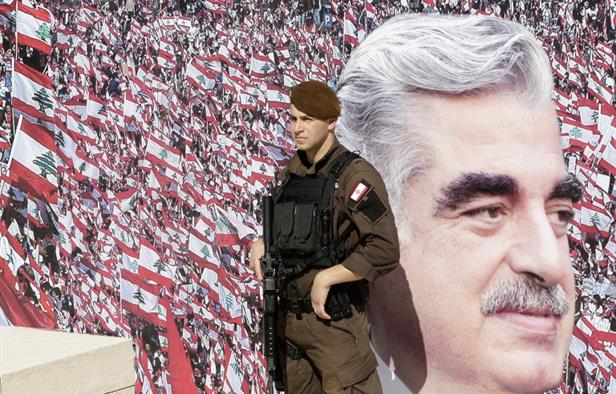Lebanon is still suffering without Hariri
Hussain Abdul-Hussain/Now Lebanon/Published: 24/08/2015
A decade after the assassination of former Prime Minister Rafiq Hariri, Lebanon is still reeling. The ruling establishment is incapable of running the country as electricity cuts become more frequent, water shortages more acute and garbage piles up across the country.
With the end of the Civil War in 1990, Hafez Assad arranged Lebanon’s governance in a way that gave him a free hand in all matters of security and foreign policy. The late Syrian president gave the Lebanese political establishment under Hariri — then still a new face and a political novice — the role of running domestic issues such as reconstruction, budgeting and services.
But the line between security and reconstruction was not always as clear, with Syrian contractors such as Yarob, the son of former Syrian intel chief and Lebanon’s viceroy Ghazi Kenaan and Jamal, the son of former Syrian Vice President Abdul Halim Khaddam, often snatching whichever lucrative contracts they wanted.
The line between security and reconstruction was further blurred with the election of former Army Commander Emile Lahoud as president. Lahoud’s two sons, Emile Jr and Ralph, became known for their moneymaking ‘entrepreneurship’ during their father’s tenure. Assad’s security officers, such as Kenaan’s successor Rustom Ghazali, started demanding bigger cuts. Under Bashar Assad, Lebanon was transformed from a marriage between Syrian security and Lebanese oligarchs into Assad’s kleptocracy.
During the Hafez years (1990 – 1998) Hariri presented a new brand of political craftsmanship. He radiated with positive energy, which he used to dig Lebanon out from under the rubble. Hariri had a plan for making Lebanon a regional hub for business, tourism and services.
Hariri wanted to build the Middle East’s biggest airport, the brightest downtown, the highest bridge over the mountainous pass of Dahr al-Baidar, a world-standard public sports complex, the highest-ranking private universities and hospitals, and many other superlative institutions. He wanted Lebanon to enter into partnership with the EU, host Olympic games, and entertain many other grandiose activities.
But Lebanon’s actual ruler, the Assad regime, did no want Hariri to grow big with his achievements. They often sent him messages. When the American University of Beirut announced the appointment of the first resident president since the mid-1980s, someone threw dynamite over the university’s fence. Some other disagreement saw two rockets strike Hariri’s Future TV building.
Coupled with these explosive messages, Assad’s Lebanese cronies built a narrative that completely vilified Hariri. In fact, even a decade after his death and the participation of Michel Aoun as a ‘partner’ in government, pro-Syrian pundits still blame Hariri for the nation’s $72 billion debt.
The brilliance of Hariri was that, despite the attacks against him, he remained steady and was never caught badmouthing his rivals. Hariri behaved as if he owned Lebanon. He reasoned that if he engaged his opponents, the bickering would hurt the country’s reputation and international trust in it.
Another one of Hariri’s skills was his ability to run a tight ship among his cohorts and keep his house and finances in order. He instilled awe in his fans and foes and used his power to shield Lebanon. Even when he was out of office between 1998 and 2000, the world still trusted Lebanon because it was the place that Hariri called home.
After his assassination and the withdrawal of Assad’s army in 2005, Lebanon lost its balance. Hezbollah repeatedly offered Hariri’s successors to re-synch security, under its control, with reconstruction under Hariri supervision. The Hariri’s turned down Hezbollah’s offer based not only on past experience but also on the fact that Assad had already brought Christian leader Michel Aoun back from exile to replace Rafiq.
But Aoun never measured up to Hariri. Aoun is twitchy, nagging and radiates negative energy. It might have been something if Aoun had ever promised Lebanon some good days, but instead he has spent the last decade in Lebanon rewriting Hariri’s story, mostly incorrectly. For its part, Hezbollah has used Aoun to channel Shiite hatred against Hariri, often to deflect Shiite anger away from Hezbollah’s own crises and endless wars.
Unlike what Aoun claims, it is not true that Hariri renovated Muslim areas only. Casino du Liban, in the heart of Christian Lebanon, was renovated on Hariri’s watch and became the lucrative cow that his rivals — Lahoud, Franjieh and Jamil Sayyed — abused. When former Finance Minister Fouad Siniora wanted to tax slot machines, the anti-Hariri concert sprang into action.
Hariri’s positive vibes overrode corruption, nepotism and plans to turn Lebanon into a ‘resistance’ state. He gave most Lebanese hope that things would always improve, like they did starting with his rise in 1993. Since his assassination, Lebanon has been on a downhill slide.
Hezbollah has the upper hand in Lebanon. Since 2005, its ally Aoun controls a considerable portion of parliament and cabinet and punctures the rest of the government. Both Hezbollah and Aoun have failed miserably in governing the country post-Hariri. Whining, nagging and blaming the man on whose legacy Lebanon barely survives today show both Hezbollah and Aoun as failing governors and as politicians who are too small to measure up to the late, larger-than-life Rafiq Hariri.
***Hussain Abdul-Hussain is the Washington Bureau Chief of Kuwaiti newspaper Alrai. He tweets @hahussain






















